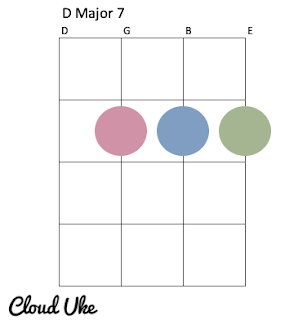The Baritone Ukulele
Do I need a baritone ukulele?
Well my first response is of course you do.
This week I answered a fellow instagrammer's query on whether buying a baritone ukulele would be right for them. Therefore I thought I'd share my answer and look at the differences between the bari and other types of ukulele before you decide to go large in the uke world.
Well my first response is of course you do.
This week I answered a fellow instagrammer's query on whether buying a baritone ukulele would be right for them. Therefore I thought I'd share my answer and look at the differences between the bari and other types of ukulele before you decide to go large in the uke world.
So first off I am completely biased. The baritone ukulele is by far my favourite type of uke and I am very fortunate to own two very beautiful baris as pictured below:
The first obvious difference in a baritone ukulele is the size. The baritone ukulele is the largest in the ukulele family and measures up at 30 inches long in comparison to a soprano, which is usually about 21 inches in length. The size difference may put some people off the bari however, I say this as a 5 foot female with small hands, so I think pretty-much anyone is capable of playing a the baritone.
The next big difference the in the ukulele is the sound. The baritone ukulele produces a rich, mellow tone, which is good for both strumming and fingerpicking. I am hoping to put together some demos of the baritone sometime soon as a sample of the baritone sound.
The most significant difference a baritone has from any other ukulele is that it is tuned differently. It usually follows the tuning of DGBE. In contrast to other ukuleles, it uses a linear tuning whereby the D string is tuned down an octave and is therefore the lowest string. This is unlike the usual re-entrant tuning you may find on other types of ukuleles, whereby the G string of the GCEA is tuned up the octave. The bari tuning is the same as the top four strings of a guitar, making it a good choice for those wishing to transition from guitar to ukulele or vice versa.
 |
| Lankikai LU-21B (Left) Antonio Carvalho BS (Right) |
 |
| Baritone ukulele vs soprano ukulele |
The next big difference the in the ukulele is the sound. The baritone ukulele produces a rich, mellow tone, which is good for both strumming and fingerpicking. I am hoping to put together some demos of the baritone sometime soon as a sample of the baritone sound.
The most significant difference a baritone has from any other ukulele is that it is tuned differently. It usually follows the tuning of DGBE. In contrast to other ukuleles, it uses a linear tuning whereby the D string is tuned down an octave and is therefore the lowest string. This is unlike the usual re-entrant tuning you may find on other types of ukuleles, whereby the G string of the GCEA is tuned up the octave. The bari tuning is the same as the top four strings of a guitar, making it a good choice for those wishing to transition from guitar to ukulele or vice versa.
The different tuning means that the chords follow the same shapes however are in a different key. For example, a C major chord on a standard ukulele (tuned GCEA) would be a G major chord on a baritone (tuned DGBE). The table below shows the key conversions for the standard ukulele tuning to the baritone ukulele tuning.
Standard
GCEA
|
Baritone
DGBE
|
C
|
G
|
C#//Db
|
G#/Ab
|
D
|
A
|
D#/Eb
|
A#/Bb
|
E
|
B
|
F
|
C
|
F#/Gb
|
C#//Db
|
G
|
D
|
G#/Ab
|
D#/Eb
|
A
|
E
|
A#/Bb
|
F
|
B
|
F#/Gb
|
Ukuchords have a detailed chord diagram reference sheet - which I have linked here.
I notice that there's not a huge amount of information or resources made especially for the bari uke. With this in mind, I wish to use this platform to mainly focus on the baritone.



Comments
Post a Comment